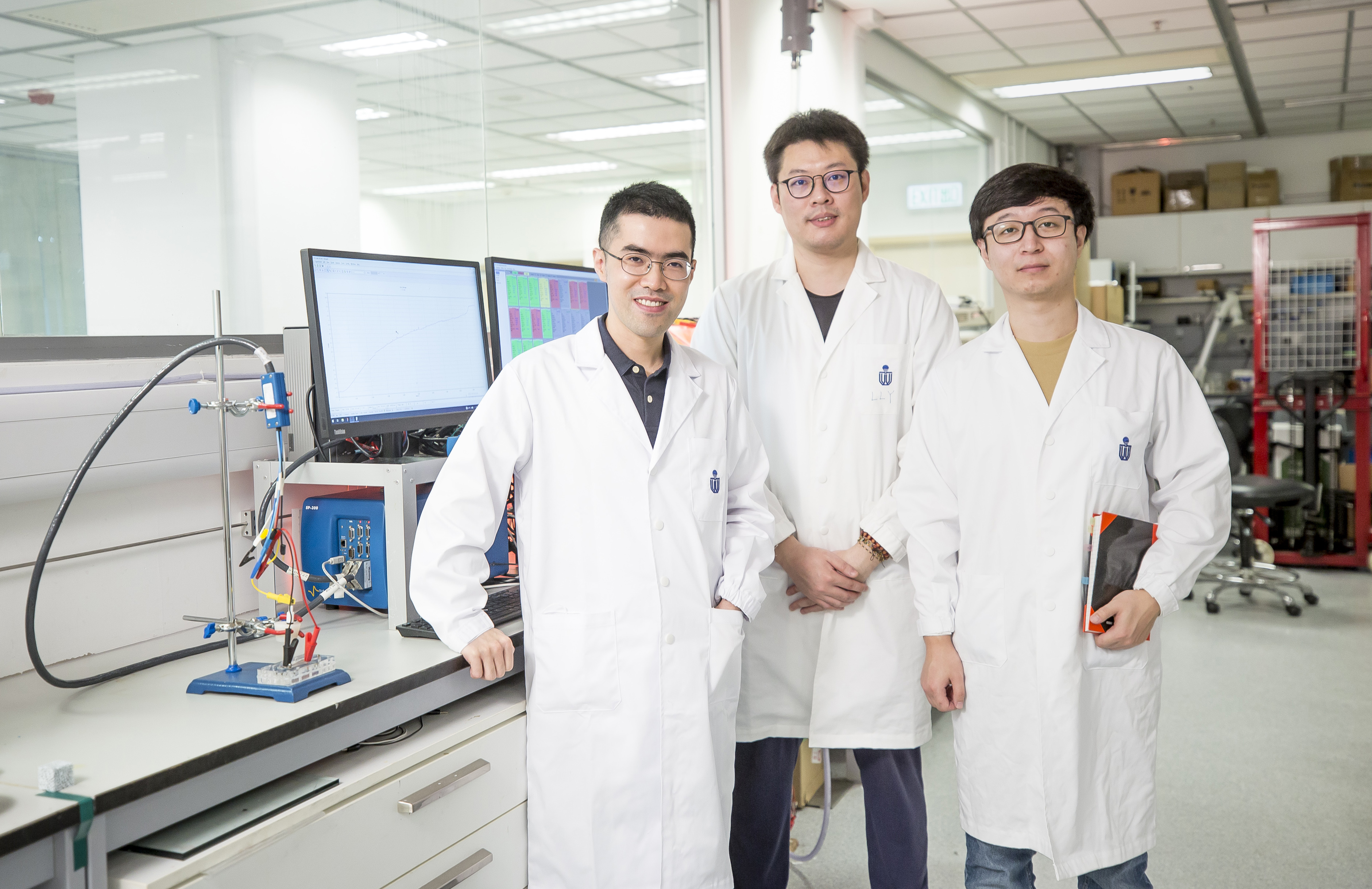A research team at The Hong Kong University of Science and Technology (HKUST) has developed a new electrode design that is set to enable the rechargeability of alkaline zinc batteries, one of the most common types of non-rechargeable batteries used in our daily lives, shedding light on a wider application of rechargeable batteries.
Batteries are ever important in the age of smart cities and global digitalization. Yet, a majority of batteries in the market are not rechargeable, or called primary batteries. They are disposed after a single use, an unsustainable practice that poses a serious threat to the environment. Read More...

(From left) Prof. Chen Qing and his research group members Dr. Li Liangyu (postdoctoral fellow) and Xiao Diwen (PhD student) at the lab of HKUST Energy Institute. On the lab bench is a set-up for fabricating the nanoporous zinc metal electrode.
Scientific Breakthroughs & Discoveries



